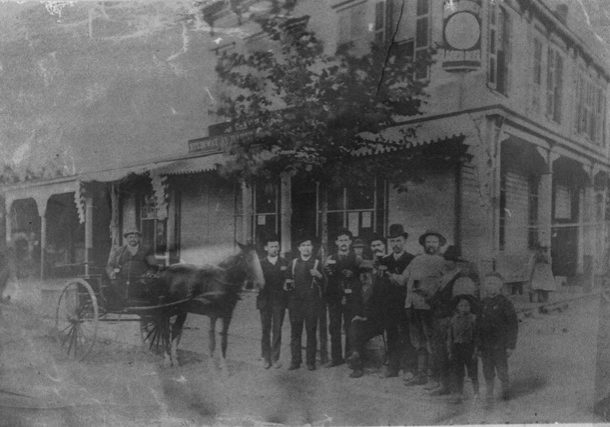THE COVID VACCINE AND ALL THAT’S IN BETWEEN

Image Shutterstock
We know what’s on your mind. While vaccine protection from COVID-19 has become widely accessible and sensible, many New Yorkers are still hesitant to get vaccinated. With indoor venues now requiring proof of vaccinations, what does all this mean for you if you are not vaccinated? In our monthly catch-up, Legal Counsel Elias Fillas of Sacco and Fillas LLP, GMA addresses your concerns.
GMA: NYC has become the first state to ban unvaccinated people from indoor dining, gyms, and entertainment venues. Is this legal?
EF: Currently, yes, unless and until the ban is challenged in the courts and the courts rule that the ban is illegal or unconstitutional.
GMA: How does it affect the fourteenth amendment and its Due Process clause when it comes to our civil rights?
EF: The very basic definition of “civil rights” is the guarantee of equal protection under the law regardless of race, religion, or other personal characteristics. There is no federal or state law which requires or mandates that an individual be vaccinated. Thus, there is no deprivation of “life, liberty or property” under the 14th Amendment. Are unvaccinated people being denied equal protection? No. Any ban prohibiting unvaccinated people from indoor dining, gyms, and entertainment venue is not based on race, religion or personal characteristics.
GMA: Can a mandatory vaccination law on the state level lead to a requirement on the federal level?
EF: While federal law generally trumps state law, federal equal employment opportunity laws do not prohibit employers from requiring vaccines and this varies from state to state.
Specifically, the U.S. Equal Employment Opportunity laws do not prevent an employer from requiring all employees physically entering the workplace to be vaccinated for COVID-19; however, in some circumstances, Title VII and the ADA require an employer to provide reasonable accommodations for employees who, because of a disability (covered by ADA), pregnancy or a religious belief, practice, or observance, do not get vaccinated for COVID-19, unless providing an accommodation would pose an undue hardship on the operation of the employer’s business. For example, a reasonable accommodation may include requiring an unvaccinated employee (i) to wear a face covering while at work, (ii) maintain social distance from coworkers or non-employees, (iii) to work a modified shift, (iv) to get periodic tests for COVID-19, or (v) be given the opportunity to telework.
GMA: To what extent does an employer or university have the right to expel an employee or student for not being vaccinated?
EF: If the employer has a reasonable belief that the unvaccinated employee will pose a “direct threat” to the health or safety of other employees in the workplace, the employer may terminate the employee. Also, similar reasoning applies to schools, as schools may require vaccination as a condition to enrollment.
GMA: Is our legal system fully prepared to address any consequences to freedom of bodily choice and other civil rights that could potentially become violated through this mandate?
EF: Yes, as our legal system has been addressing issues of similar nature for over a hundred years. For example, in 1905, the Supreme Court, in Jacobson v. Massachusetts, ruled that states are permitted to require people to be vaccinated against smallpox; this decision paved the way for schools to require proof of vaccinations from students. Also, with the reach of social media and coverage, we now see how widespread movements are with respect to issues such as civil rights and gender diversity.
GMA: Given a lot of the controversy and inconsistencies surrounding the virus and the vaccine’s effectiveness, especially now with the new delta variant, is it justifiable to legally mandate entry into indoor venues, and other venues as decided by the state, for a virus that’s still mutating and a vaccine that is still not 100% FDA fully approved or proven in long-term effectiveness?
EF: It’s an opinion-based response, but the actions are justified to ensure public safety.
31-19 Newtown Ave / (718) 746-3440 / saccofillas.com
















